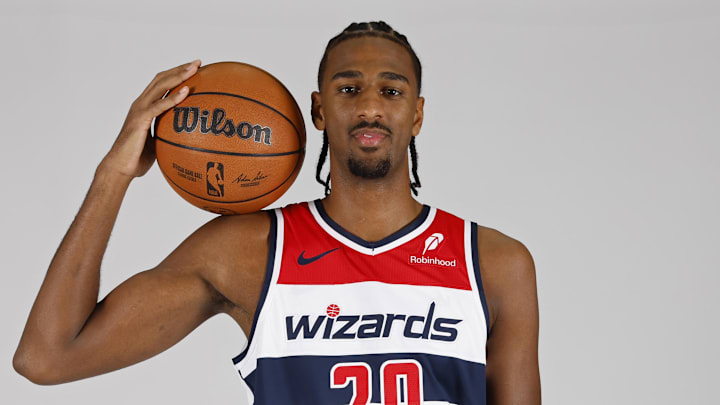The Washington Wizards, as you certainly know, are stumbling through a lengthy rebuild. But what if I told you the end may come sooner than previously thought?
Some historic NBA teams transitioned from directionless to competitive in the blink of an eye. The Los Angeles Lakers and Boston Celtics rose from the ashes to dominate the 1980s after drafting Magic Johnson and Larry Bird, respectively, for example.
The Oklahoma City Thunder and Detroit Pistons have rebuilt exceptionally well in recent years, and not even merely as the result of acquiring a single franchise-altering player. What can the Wizards learn from those two teams?
Oklahoma City Thunder
The Thunder made the playoffs with Chris Paul when I was a junior in high school, and they began their subsequent rebuild when I was a senior. Now I am a senior in college and the Thunder are the favorites to win the NBA Championship this season.
Contrast this to a team like the Charlotte Hornets, who last made the playoffs when I was in seventh grade and have been perpetually rebuilding ever since.
OKC is so successful because general manager Sam Presti knows precisely when and how to involve his players in trade talks. Take Josh Giddey, for example. Giddey was the sixth pick in the 2021 NBA Draft, and almost every other team would have stuck with him through his struggles and tried to force him to be a franchise player — a role for which he is not cut out.
The Thunder, however, correctly identified his lack of a fit within the organization and traded him straight-up for a role player who turned out to be a perfect fit. Now Alex Caruso is a fundamental part of OKC’s league-best defense.
Also, consider the value of asset collection. While rebuilding, OKC was willing to take on contracts perceived to be bad, like Al Horford’s in 2020, in exchange for quality draft capital. The Wizards have done this to an extent — most notably by acquiring Marcus Smart — but some of their trades, like the one to acquire Khris Middleton, still involved getting off of their own bad contracts.
On top of savvy player movement, OKC has also proven to be the marquee evaluator of talent in the entire NBA. OKC stole Shai Gilgeous-Alexander from the LA Clippers in the Paul George Trade and used a pick from that trade to draft Jalen Williams. Both were All-Stars this season. Aaron Wiggins, Cason Wallace, Lu Dort, Isaiah Joe, Jaylin Williams, and more were all also either drafted by the organization or developed after being cast off elsewhere.
Detroit Pistons
One year ago the Pistons were coming off an NBA-record 28-game losing streak. Now they’re a playoff team who could feasibly win a series this year.
Such a rapid turnaround was not expected, but it was set up nicely by the organization. Firing Monty Williams, who did not want to be there, and replacing him with JB Bickerstaff turned out to be one of the best coaching moves of the offseason.
Additionally, Detroit’s season really proves the value of bringing in solid veteran players to bolster existing young talent. Tobias Harris, Malik Beasley (my pick for Sixth Man of the Year), Tim Hardaway Jr., and Dennis Schroder are all merely complimentary pieces who fit the stereotypical blue-collar Detroit Piston mold.
The Wizards tried this strategy out at the trade deadline by bringing in Smart and Middleton; I’d say Smart is a better fit for this mentorship role than Middleton, a historically volume-scoring forward, is.
Year-over-year internal improvement among the Pistons’ young core has also been massive, especially with recent All-Star Cade Cunningham. Cunningham has blossomed into one of the smoothest operators in the entire NBA and, depending on the matchup, has the chance to be the best player in a playoff series this year.
The Wizards still lack that number one type of guy who can be the best player in a playoff series someday, but they do have an incredibly high chance to select a real stud in the upcoming draft to add alongside last offseason's draft class.
